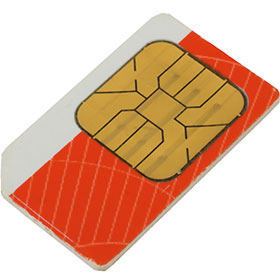

Historically, the private security industry has relied on RF Modules – such as the TX75X from FSK Electronics – to transmit and/or receive radio signals between two points, between the private home’s alarm system and the radio frequency (RF) repeater site, for example, and then between the RF repeater site and the security control room. A persistent issue with the traditional RF signal transmission system is that signals get dropped due to congestion, with most occurrences taking place during peak hours.
As the world evolved from using home telephones to cellphones, so the security industry should also evolve from outdated RF technology to GSM (Global System for Mobile Communication). Security and monitoring companies who have made the move to GSM have reported more reliable signal transmission, quicker signal transmission, and no lost signals, allowing them to better serve their customers while cutting operating costs. The best security and monitoring businesses use a combination of transmission mediums such as GSM, RF and Internet Protocol (IP). This integrated approach ensures complete signal integrity, giving security and monitoring companies and other network users not only a competitive edge, but also peace of mind.
Electronic security manufacturers – such as FSK Electronics situated in Gauteng West – are pioneering the use of GSM technology in radio communicators. Their first-issue GSM communicator was the TX Cellular unit which proved to be a success in the South African market, prompting further investment in research.
To support its GSM communicators, FSK Electronics set up its own network to route signals from the installed communicators through the GSM towers on to the routing server, and finally the security control room. These owned networks – called Sabre Cell and Sabre Radio – ensure that FSK Electronics can deliver a consistent and reliable service to their customers.
Historically, all GSM communicators made use of plastic SIM cards, such as the ones used in mobile phones, to enable the operation of the unit over GSM / GPRS networks.
A subscriber identity module (SIM) is a smartcard inside of a GSM communication device that stores data about the specific user so that the user can be identified and authenticated to the network supplying the service. A major issue, which is quite unique to South Africa and Africa in general, is the theft and subsequent misuse of the regular plastic SIM cards. These SIMs are removed by unauthorised personnel and placed into other devices, causing thousands of rands worth of damage to service providers and clients.
FSK Electronics was the first electrical security manufacturer in South Africa to tackle the issue head-on by incorporating chip SIMs in its communicators. Chip SIMs are permanently fixed to the device, effectively eliminating chances of theft and fraud on service accounts as it is virtually impossible to remove. They are also not compatible with devices such as mobiles, tablets and modems, rendering them useless if removed. FSK Electronics integrated these chip SIMs into the Falcon GSM Communicator, but went a step further by issuing dual chip SIM units which further reduced the chances of missing a signal in the event of a network failure.
The dual chip SIM is an intelligent system which switches over from the default GSM service provider in instances where signals are low, transmission times may take too long and so on. The Falcon GSM unit is the latest GSM offering from FSK Electronics SA, which is specially designed for data users, and preferred by security and monitoring companies for its superior performance and reliability.
For more information contact FSK Electronics SA, +27 (0)11 477 2600, [email protected], www.fsk.co.za
© Technews Publishing (Pty) Ltd. | All Rights Reserved.